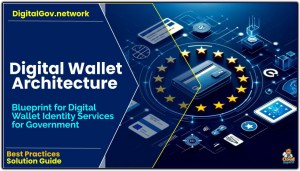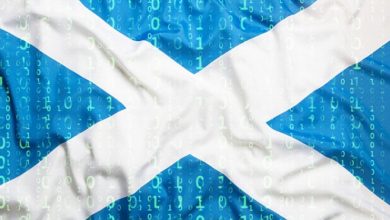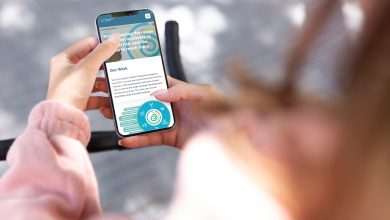The GOVUK Digital Wallet – Keystone Building Block for the UK Digital Economy
New smartphone apps and credentials offer the component parts for building a wholly integrated ecosystem of new digital services across the public and private sectors.
 As they write here the UK Government has launched a new digital wallet app.
As they write here the UK Government has launched a new digital wallet app.
Led by Natalie Jones OBE back in May she set the scene for this launch. It is one of the five blueprint kick-starters intended to achieve a modern digital government.
The GOV.UK Wallet is designed to provide a secure, convenient way for UK citizens to store and access government-issued documents on their smartphones, to simplify interactions with government services by allowing users to digitally store credentials, reducing reliance on physical documents and streamlining processes like proving identity, age, or eligibility for services.
Digital Government Efficiencies
It will enable citizens to use digital versions of documents—such as driving licences or benefit proofs—in the same way as their physical counterparts, for tasks like purchasing age-restricted items or accessing welfare discounts. Use of the wallet is optional, with traditional physical documents remaining available for those who prefer them.
The wallet will launch later in 2025, starting with a Digital Veteran Card for former armed forces personnel and a pilot for a mobile driving licence. These will be the first credentials available. By the end of 2027, the wallet is planned to include all government-issued credentials, such as Veteran Cards, Disclosure and Barring Service (DBS) checks, and potentially passports, birth certificates, and marriage certificates, where practical.
The wallet leverages built-in smartphone security features, including facial recognition (similar to digital banking apps), to ensure documents remain secure even if a device is lost or stolen. This avoids a central database, meaning hackers would need to breach individual phones rather than a single system.
Access to the wallet is tied to the GOV.UK One Login system, a single sign-on platform already integrated with over 50 government services, enhancing security and user verification.
Key Features and Benefits
- Immediate Access: Digital credentials will be available instantly upon successful application, eliminating delays associated with physical document delivery.
- Limited Scope: Unlike commercial digital wallets (e.g., Apple Wallet or Google Wallet), the GOV.UK Wallet will only store government-issued documents, not private items like train tickets or loyalty cards.
- Interoperability: While initially a standalone app, the government is exploring future integration with other digital wallet providers (e.g., Apple or Google) to broaden accessibility, though no firm commitment has been made.
Integrated Digital Economy
Announced in January 2025 by Science Secretary Peter Kyle and Transport Secretary Heidi Alexander, the Digital Driving Licence will be one of the first credentials available through the GOV.UK Wallet, a secure digital platform designed to store government-issued documents on smartphones.
This begins to highlight the opportunity, and challenges, presented to build an integrated Digital Economy using these technologies as the building blocks.
The Digital Driving Licence integrates with broader plans to digitize government services, such as car rentals (via a “Share My Licence” feature), tax payments, and benefits claims.
There are a multitude of use cases spanning government and business that depend on this exchange and verification of credentials, such as proving the right to drive, verifying age for purchasing restricted items (e.g., alcohol), and potentially facilitating tasks like voting or boarding domestic flights, instant licence checks for car hires or self-checkout age verification at supermarkets.
With nearly 50 million Britons holding full or provisional driving licences, the digital option promises significant convenience, and immediate access to credentials post-application eliminates postal delays. For drivers, the ability to hide sensitive details (e.g., addresses) in certain contexts, such as age verification in shops, enhances privacy and usability.
A Nationwide Collaboration Ecosystem
The challenge is one of common adoption and interoperation. For example the Department of Education recently launched an app for digitizing academic records in the same way as the driving licence, and therefore offering equivalent types of efficiency benefits for businesses as well as users.
With a primary goal of academic credentials being to underpin the credibility of candidates for possible employment roles there is a powerful intersection across these scenarios. HR departments are overwhelmed with outdated, manual paper work, and there is also an issue of fraudulent certifications. Therefore digitized credentials benefits them as much as the students, speeding as well as securing the process.
However the killer question is can these credentials also be stored in the Govuk Wallet alongside the driving licence? Or is it yet another standalone, isolated app with no interoperability between them? Similarly what about healthcare, like the NHS Wales app and Welsh Nursing Care Record, is that yet another one? In Scotland you can open a ‘ScotAccount‘.
The curse and downfall of many previous Government attempts at digital identity initiatives has been this duplicated silo effect, where multiple organizations each operate their own isolated program, when as the use cases demonstrate the value is primarily achieved through interoperability.
Therefore while digital wallets do indeed provide the keystone building block for a national digital economy, it is the universal adoption and collaboration of multiple private and public sector organizations that will drive it’s success.




